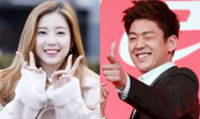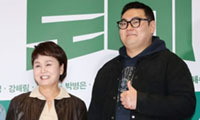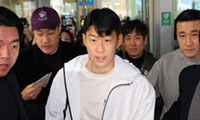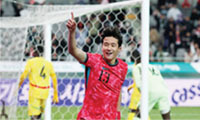Today it’s harder to have faith in rapid progress. Democracy is receding. Autocrats like Vladimir Putin of Russia are marching. The European project is decaying. Economies are struggling. Reactionary forces like the Islamic State and Iran are winning. The Middle East is deteriorating.
In this climate, the tone and focus of politics change. Politics is less about win-win situations and more about zero-sum situations. It is less about reforms that will improve all lives and more about unadorned struggles for power. Who will control the ground in places like Ukraine and Syria? Will Iran get the bomb? Will the White House or Congress grab power over treaties and immigration policy?
At these moments, tough guys do well. Cooperative skills are less valued while confrontational skills are more valued. Benjamin Netanyahu wins re-election in Israel. The pugnacious Nicolas Sarkozy, of all people, is staging a comeback in France. Putin is in his element.
Barack Obama started out as a hope-and-change idealist, but he has had to toughen to fit the times. Angela Merkel is the paradigmatic leader of the age: shrewd, unemotional, nonidealistic, austere and interested in power. As the former U.S. ambassador to Germany John Kornblum told George Packer of The New Yorker: “If you cross her you end up dead. ... There’s a whole list of alpha males who thought they would get her out of the way, and they’re all now in other walks of life.”
In these moments, right-leaning parties tend to do well and have a stronger story to tell on national security. They speak the language of nationalism and cultural cohesion. People who are economically insecure (and more likely to lean left) drop out of the political process.
Both parties, though, change shape to fit the zero-sum contours of the moment. Progressives emphasize compassion less and redistribution more. Conservatives emphasize entrepreneurial dynamism less and the threat of government elites more. Electorates get a little uglier when faith in progress declines. Voters across the spectrum get more cynical and distrustful. They are quicker to perceive threats from The Other.
For example, anti-Semitism is a good barometer of a worsening public mood. According to the Pew Research Center, acts of hostility toward Jews are now rampant in 39 percent of countries, up from 26 percent in 2007. The U.K. Community Security Trust registered 1,168 anti-Semitic incidents in Britain in 2014, more than double the number from the previous year.
It’s rare to have major realignments at a moment like this. Everybody is hunkered down and risk averse. Voters in this battened-down frame of mind are willing to elect familiar faces (better the devil you know). The Israeli, American and European electorates have been remarkably stable over the past decade. In Israel, for example, the overall vote that went to right-wing parties was stable from this election to last; it’s just that the Likud Party grabbed a big share of the nationalist electorate.
Still, you do see some shifts. Extreme parties rise, especially the ones that repel supposed interlopers and oppose elite global projects. We’re seeing that across the globe with the Tea Party, UKIP in Britain, National Front on the right in France and Syriza on the left in Greece.
Extreme parties rarely take power, but they do influence politics because mainstream politicians have to co-opt them. Mainstream politicians have to fight two-front wars: the official one against their ideological opponents and the unofficial one to silence, co-opt and crush the extremists on their own side.
This is what Netanyahu did in Israel. He didn’t literally renounce the idea of a two-state solution forevermore. He just said that it would be too dangerous in the near term as long as Islamist-style radicalism is on the march. (A defensible proposition.) Still, these comments and the ones on Israeli Arabs were blatant panders. He took Knesset seats away from parties to his right by becoming more like them.
These conditions will influence the 2016 American election, too. I’d guess that the cultural moment favors Scott Walker and Chris Christie, who have records of confrontation, over Jeb Bush, who hasn’t won election in this era and has a softer mien. I’d also say they strengthen Hillary Clinton. She has a Merkel-like toughness and may actually benefit from the familiar-face phenomenon.
In general, the power of the cultural moment shapes the candidates. But occasionally there is a leader who can turn a negative popular mood into a positive one. F.D.R. and Reagan did this. But you have to be very, very good.
스마터리빙
more [ 건강]
[ 건강]이제 혈관 건강도 챙기자!
[현대해운]우리 눈에 보이지 않기 때문에 혈관 건강을 챙기는 것은 결코 쉽지 않은데요. 여러분은 혈관 건강을 유지하기 위해 어떤 노력을 하시나요?
 [ 건강]
[ 건강]내 몸이 건강해지는 과일궁합
 [ 라이프]
[ 라이프]벌레야 물럿거라! 천연 해충제 만들기
 [ 건강]
[ 건강]혈압 낮추는데 좋은 식품
[현대해운]혈관 건강은 주로 노화가 진행되면서 지켜야 할 문제라고 인식되어 왔습니다. 최근 생활 패턴과 식생활의 변화로 혈관의 노화 진행이 빨라지고
사람·사람들
more많이 본 기사
- 아이폰 있으면 국내선 여권 불필요
- 메디케이드·식량·주거 보조 이용… 영주권 ‘불이익’
- 한인 마켓도 덮친 ‘대대적 이민 단속’
- [화제] 동명이인도 ‘깜짝’ … 스크래치 100만달러 잭팟
- ‘이경실 子’ 손보승, 군 복무기간 중 ‘달걀 판매’ 영리활동..징계 대상자 되나?
- 손흥민, ‘임신 협박 3억 갈취’ 20대女 재판에 ‘증인 출석’... 50분간 비공개 신문
- [송년모임] 월남전 참전자회 내달 14일
- [송년모임] 호남 향우회 내달 16일
- ‘♥이용대 열애설’ 에이프릴 윤채경, 소나무 같은 취향? “이상형은 이민호”
- 사유리, 5세 子 외국인 학교 보냈다 “다 영어로 대화..기 죽어”
- “첨단기술 노린 중국, 미국에 지난 … 1
- ‘200억 매출’ 진재영, 김치 사업 도전하나.. “혼자 할 수 있을지 모르겠지만”
- 푸드스탬프 재신청 의무화 추진 300여만명 식비지원 상실 위기
- 듀스, 28년만 신곡 ‘라이즈’ 발매…故김성재 목소리 AI로 복원
- 고개 숙인 일본, 주머니에 손 넣은 중국
- 한인타운 올림픽·버몬트 총격 사건
- 홍명보호, 가나에 1-0 승리로 유종의 미… 내용은 아쉬워
- [경제 트렌드] “거스름 줄 동전이 없어”… 1센트 폐지 혼란
- “티켓은 비자아냐”
- ‘트럼프 신속대응팀’ 비판에 연방 법무부 내부 ‘흔들’
- “무너진 캘리포니아 재건하겠다”
- ‘호객 없는 수산시장’… 제철 맞은 방어, 새우 먹으러 울진 간다
- “한인사회를 섬기는 최고의 의료그룹 SMG”
- [미국은 지금] 미국 정치의 파산과 그 댓가
- 계속되는 민주당의 헛손질
- 한인은행 수익률… LA 카운티 은행 중위권 그쳐
- LA 곳곳 ‘폭우 후유증’… 타운도 팟홀 몸살
- 한국·캔자스 운전면허 상호인정… 가주는 ‘깜깜’
- 사라진 백악관의 이스트 윙
- AI 확산에 올해 일자리 110만개 사라져
- 성범죄자에 ‘불륜 상담’ 하버드 전총장 활동중단
- 이탈리아 축구, 3회 연속 월드컵 본선 탈락 위기 ‘악몽’
- 영국 학교, 케데헌 ‘금지령’… “기독교와 맞지 않아”
- 소비 양극화… 저소득층 패스트푸드도 못가
- 이젠 프리웨이도 달리는 웨이모
- [수요 에세이] 부석사, 배흘림기둥에 기대어 보다
- 맥도널드, 연말 인기메뉴 ‘맥립’ 출시
- [만화경] ‘국부론’과 “기업이 곧 국력”
- 디트로이트, 18년 만에 10연승 ‘신바람’
- “소득대비 과도 공제… IRS 감사타겟 될 수도”
- 챗GPT·X 등 한때 접속 불통 사태
- 비트코인 9만달러 붕괴 최고치 대비 29% 하락
- 홈디포, 실적 하향 ‘소비 둔화 경고음’
- 김&리 회계법인, 업무협약 체결
- 베조스, AI 스타트업 CEO로 경영 일선 복귀
- 로봇시대 게임체인저… K원팀으로 100조시장 뚫는다
- 대만, 첨단반도체 통제 “사전 허가받아야 수출”
- 현대차, 러시아 복귀하나… “현지 상표 등록”
- [인터뷰] “원스톱 협진케어… 온 가족 누리는 진료 제공 보람”
- [송년행사 게시판] 서울삼광초등학교 外
1/5지식톡

-
 테슬라 자동차 시트커버 장착
0
테슬라 자동차 시트커버 장착
0테슬라 시트커버, 사놓고 아직 못 씌우셨죠?장착이 생각보다 쉽지 않습니다.20년 경력 전문가에게 맡기세요 — 깔끔하고 딱 맞게 장착해드립니다!장착비용:앞좌석: $40뒷좌석: $60앞·뒷좌석 …
-
 식당용 부탄가스
0
식당용 부탄가스
0식당용 부탄가스 홀세일 합니다 로스앤젤레스 다운타운 픽업 가능 안녕 하세요?강아지 & 고양이 모든 애완동물 / 반려동물 식품 & 모든 애완동물/반려동물 관련 제품들 전문적으로 홀세일/취급하는 회사 입니다 100% …
-
 ACSL 국제 컴퓨터 과학 대회, …
0
ACSL 국제 컴퓨터 과학 대회, …
0웹사이트 : www.eduspot.co.kr 카카오톡 상담하기 : https://pf.kakao.com/_BEQWxb블로그 : https://blog.naver.com/eduspotmain안녕하세요, 에듀스팟입니다…
-
 바디프렌드 안마의자 창고 리퍼브 세…
0
바디프렌드 안마의자 창고 리퍼브 세…
0거의 새제품급 리퍼브 안마의자 대방출 한다고 합니다!8월 23일(토)…24일(일) 단 이틀!특가 판매가Famille: $500 ~ $1,000Falcon: $1,500 ~ $2,500픽업 & 배송직접 픽업 가능LA…
-
 바디프렌드 안마의자 창고 리퍼브 세…
0
바디프렌드 안마의자 창고 리퍼브 세…
0거의 새제품급 리퍼브 안마의자 대방출 한다고 합니다!8월 23일(토)…24일(일) 단 이틀!특가 판매가Famille: $500 ~ $1,000Falcon: $1,500 ~ $2,500픽업 & 배송직접 픽업 가능LA…
케이타운 1번가
오피니언
 정숙희 논설위원
정숙희 논설위원사라진 백악관의 이스트 윙
 파리드 자카리아 워싱턴포스트 칼럼니스트 / CNN ‘GPS’ 호스트
파리드 자카리아 워싱턴포스트 칼럼니스트 / CNN ‘GPS’ 호스트 계속되는 민주당의 헛손질
 김동찬 시민참여센터 대표
김동찬 시민참여센터 대표 [미국은 지금] 미국 정치의 파산과 그 댓가
 성영라 수필가 미주문협 부이사장
성영라 수필가 미주문협 부이사장 [수요 에세이] 부석사, 배흘림기둥에 기대어 보다
 서정명 / 서울경제 논설위원
서정명 / 서울경제 논설위원[만화경] ‘국부론’과 “기업이 곧 국력”
 노세희 부국장대우·사회부장
노세희 부국장대우·사회부장 대한은 다시 살아나는가
 민경훈 논설위원
민경훈 논설위원사자와 생쥐, 그리고 인간 이야기
 한형석 사회부 부장대우
한형석 사회부 부장대우 한인타운 교통 인프라 개선 기대
 박영실 시인·수필가
박영실 시인·수필가 [화요칼럼] 말의 위력
1/3지사별 뉴스

‘네이버 플러스’호스피스 자원봉사자 31명 배출
뉴저지 팰리세이즈팍에 위치한 비영리단체‘네이버 플러스’(Neighbor Plus·이사장 양춘길 목사)가 말기암 환자와 그 가족들을 돌보는 제4…
회장선거(뉴저지한인회) 놓고 내분사태 ‘악화일로’

“워싱턴교협 50년, 다음세대에 방향 제시하는 좌표”
“구슬이 서 말이라도 꿰어야 보배라는 말이 있다. 구슬을 꿰어 보배를 만들어 낸 편찬위원회에 감사하고, 지난 50년간 그 구슬을 만들어낸 여러…
장학생 20명 선정…장학금 총 3만불

사우디 빈살만 “1조달러 투자”…7년만의 방미환대 트럼프에 선물
사우디아라비아가 18일 대미 투자액을 기존에 발표했던 6천억 달러(약 876조원)에서 1조 달러(약 1천460조원) 규모로 상향 조정하기로 했…
방한후 美입국했다 석연찮게 구금된 한인과학자, 4개월만에 석방

오늘 하루 이 창 열지 않음 닫기 




















































.png)


댓글 안에 당신의 성숙함도 담아 주세요.
'오늘의 한마디'는 기사에 대하여 자신의 생각을 말하고 남의 생각을 들으며 서로 다양한 의견을 나누는 공간입니다. 그러나 간혹 불건전한 내용을 올리시는 분들이 계셔서 건전한 인터넷문화 정착을 위해 아래와 같은 운영원칙을 적용합니다.
자체 모니터링을 통해 아래에 해당하는 내용이 포함된 댓글이 발견되면 예고없이 삭제 조치를 하겠습니다.
불건전한 댓글을 올리거나, 이름에 비속어 및 상대방의 불쾌감을 주는 단어를 사용, 유명인 또는 특정 일반인을 사칭하는 경우 이용에 대한 차단 제재를 받을 수 있습니다. 차단될 경우, 일주일간 댓글을 달수 없게 됩니다.
명예훼손, 개인정보 유출, 욕설 등 법률에 위반되는 댓글은 관계 법령에 의거 민형사상 처벌을 받을 수 있으니 이용에 주의를 부탁드립니다.
Close
x